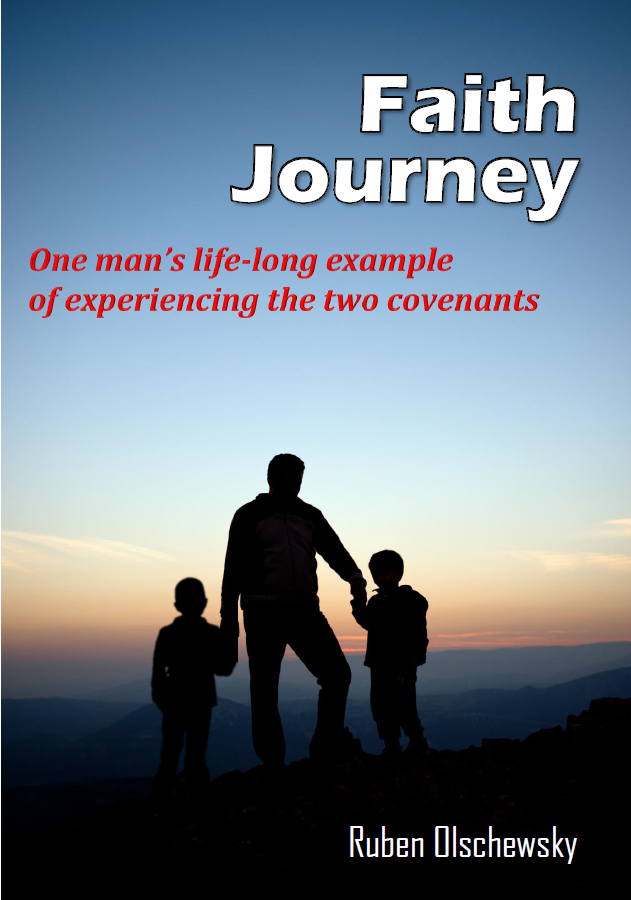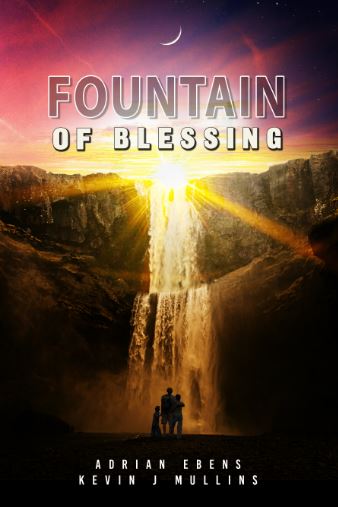(Revelation 14:10-11) Doesn’t the Bible Say That God Will Burn and Torture People “Forever and Ever”?
“ … And he shall be tormented with fire and brimstone before the holy angels and before the Lamb. The smoke of their torment goes up forever and ever …” (Revelation 14:10-11, see also Rev. 20:10)


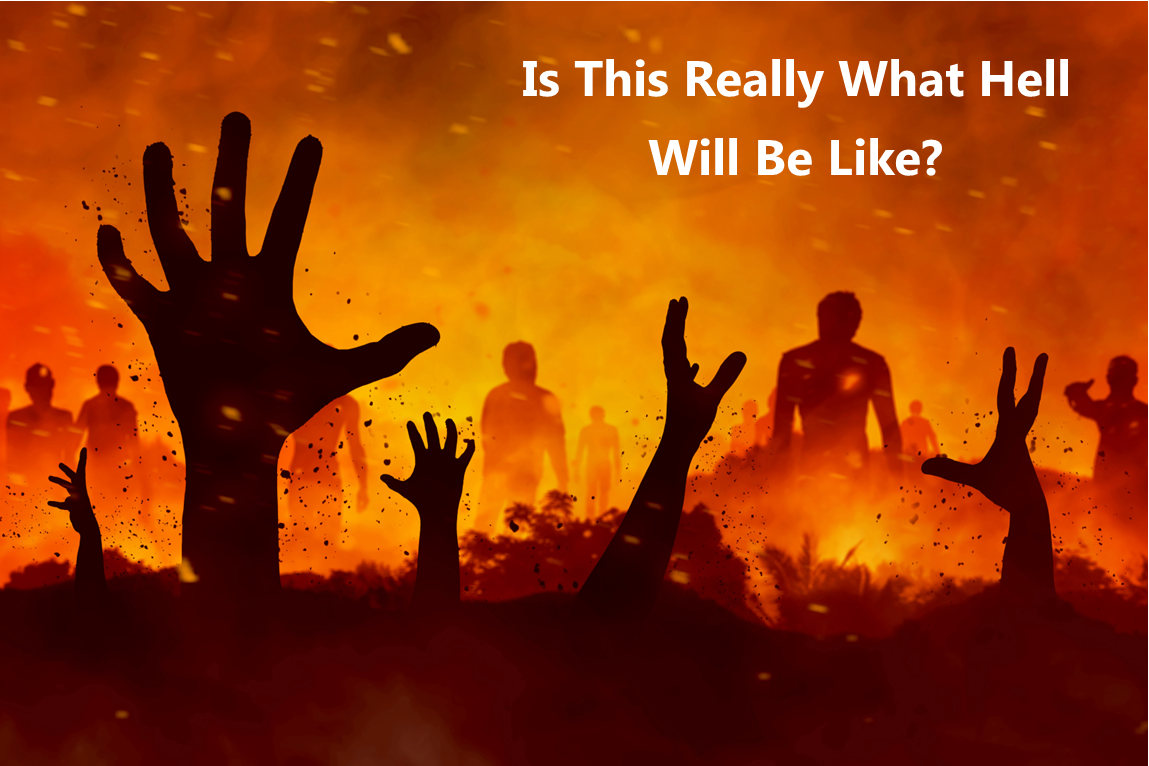 Through the error of preconceived ideas, this verse, and others like it, has caused many to believe that those who have rejected salvation are cast into a “lake of fire”, and will never die. Their punishment will be endless-life in endless-torture.
Through the error of preconceived ideas, this verse, and others like it, has caused many to believe that those who have rejected salvation are cast into a “lake of fire”, and will never die. Their punishment will be endless-life in endless-torture.
In the very popular and highly praised sermon entitled, Sinners in the Hand of an Angry God, Jonathan Edwards (1703-1758) says:
“The God that holds you over the pit of hell, much as one holds a spider or some loathsome insect over the fire, abhors you, and is dreadfully provoked. His wrath towards you burns like fire; he looks upon you as worthy of nothing else but to be cast into the fire. He is of purer eyes than to bear you in his sight; you are ten thousand times as abominable in his eyes as the most hateful, venomous serpent is in ours.”
In another sermon Edwards warns:
“… the wrath of God will be poured out upon the wicked without mixture. Imagine yourself to be cast into a fiery oven … how would your hearts sink if you knew that you must bear it forever and ever! That there would be no end! That after millions and millions of ages your torment would be no nearer to an end, and that you never, never should be delivered. But your torment in hell will be immensely greater than this illustration represents.”
John Whitaker (1783-1866) described hellfire saying:
“The bodies of the damned will all be salted with fire, so tempered and prepared as to burn the more fiercely, and yet never consume.”
Johan Gerhard (1582-1637) taught:
“… the Blessed will see their friends and relations among the damned as often as they like but without the least of compassion.”
Is this really what Scripture is describing when it speaks of being tormented with fire and brimstone? Let’s first look at the concept of being “tormented.”
The Biblical Meaning of the Word “Tormented”
 The Greek word for “tormented” in Revelation 20:10 is βασανίζω (bansanizo) meaning, “To test the purity of metals such as gold and silver by rubbing them upon a touchstone.” The “torment” that the lost will experience is not physical pain, but intense mental anguish caused by a refusal to repent which magnifies self-condemnation. Let’s review some other examples which help us understand the use of the word “tormented.”
The Greek word for “tormented” in Revelation 20:10 is βασανίζω (bansanizo) meaning, “To test the purity of metals such as gold and silver by rubbing them upon a touchstone.” The “torment” that the lost will experience is not physical pain, but intense mental anguish caused by a refusal to repent which magnifies self-condemnation. Let’s review some other examples which help us understand the use of the word “tormented.”
“And they that dwell upon the earth shall rejoice over them, and make merry, and shall send gifts one to another; because these two prophets tormented (bansanizo) them that dwelt on the earth.” (Revelation 11:10)
Although we won’t be going into detail concerning these two prophets, we can be assured they are not tormenting the people with physical torture, but instead it’s more of a torment of the conscience because of truth presented. (For a detailed study on these two prophets, see the article entitled Who Are the Two Witnesses? in the prophecy section).
Here is another example of the use of the word, bansanizo:
“For that righteous man (Lot) dwelling among them, in seeing and hearing, vexed (bansanizo) his righteous soul from day to day with their unlawful deeds.” (2 Peter 2:8)
Here we read Lot was vexed (or tormented) by all the unlawful deeds done by the citizens of Sodom and Gomorrah. He was not tormented physically, but mentally.
One more example:
“And He (Jesus) saw them (the disciples) toiling (bansanizo) in rowing; for the wind was contrary unto them: and about the fourth watch of the night He cometh unto them, walking upon the sea, and would have passed by them.” (Mark 6:48)
Notice yet again that the disciples were not tormented physically, but mentally fearing for their lives. On page 8 of his book, The Lake of Fire and the Second Death, Ray Foucher writes:
“Think of ‘gold purified in the fire.’ This “torment” can be thought of as the application of the touchstone. It is the test, the evaluation of the character or fitness for heaven. It is especially the revelation to the lost themselves (God already knows their condition and destiny) of their condemnation as a result of their sins. Can you imagine being in that situation and coming to understand that you have thrown away eternal life because of choices you have made? The regret and mental anguish would be totally overwhelming.”
Notice how Isaiah describes the scene:
“Therefore shall all hands be faint, and every man's heart shall melt: And they shall be afraid: pangs and sorrows shall take hold of them; they shall be in pain as a woman that travaileth: they shall be amazed one at another; their faces shall be as flames.” (Isaiah 13:7, 8)
Hosea also speaks of this mental anguish caused by the conviction of sin:
“For they have made ready their heart like an oven, whiles they lie in wait: their baker sleepeth all the night; in the morning it (their heart/conscience) burneth as a flaming fire.” (Hosea 7:6)
Jesus echoes this by saying:
“And there shall be signs in the sun, and in the moon, and in the stars; and upon the earth distress of nations, with perplexity; the sea and the waves roaring; Men's hearts failing them for fear, and for looking after those things which are coming on the earth: for the powers of heaven shall be shaken.” (Luke 21:25, 26)
The book of Revelation also describes the mental condition of those who have chosen to refuse salvation:
 “And the heaven departed as a scroll when it is rolled together; and every mountain and island were moved out of their places. And the kings of the earth, and the great men, and the rich men, and the chief captains, and the mighty men, and every bondman, and every free man, hid themselves in the dens and in the rocks of the mountains; And said to the mountains and rocks, Fall on us, and hide us from the face of him that sitteth on the throne, and from the wrath of the Lamb: For the great day of his wrath is come; and who shall be able to stand?” (Revelation 16:14-17)
“And the heaven departed as a scroll when it is rolled together; and every mountain and island were moved out of their places. And the kings of the earth, and the great men, and the rich men, and the chief captains, and the mighty men, and every bondman, and every free man, hid themselves in the dens and in the rocks of the mountains; And said to the mountains and rocks, Fall on us, and hide us from the face of him that sitteth on the throne, and from the wrath of the Lamb: For the great day of his wrath is come; and who shall be able to stand?” (Revelation 16:14-17)
Being afraid of a gentle and loving Lamb is insanity. This mental anguish, caused by one’s stony heart, will trigger what’s called “stress-induced cardiomyopathy” as it did to Ananias and Sapphira when their unrepented guilt and sin was exposed in Acts 5:1-11. (See the article entitled, Did God Kill Ananias and Sapphira?)
The “Fire” is Used Metaphorically as Testing
One’s Purity (or Fitness) for the Kingdom of God
“Every man's work shall be made manifest: for the day shall declare it, because it shall be revealed by fire; and the fire shall try every man's work of what sort it is. If any man's work abide which he hath built thereupon, he shall receive a reward. If any man's work shall be burned, he shall suffer loss: but he himself shall be saved; yet so as by fire.” (1 Corinthians 3:13-15)
“Beloved, think it not strange concerning the fiery trial which is to try you, as though some strange thing happened unto you: But rejoice, inasmuch as ye are partakers of Christ's sufferings; that, when His glory shall be revealed, ye may be glad also with exceeding joy.” (1 Peter 4:12, 13)
The reason why some will be able to stand at the end while others perish is because those who have accepted Jesus are going through the fiery trial now. We are going through each trial trusting in Jesus. As He lovingly convicts of sin, we immediately give it and the guilt over to Him to cleanse us from all unrighteousness. Those who fear in the end are the ones who have held onto their guilt, not trusting in nor giving the guilt over to Jesus. They have decided to become their own sin-bearer, but when their sin is fully exposed to them, they are crushed by it and its condemning guilt. This is “the wrath of the Lamb.” God’s wrath is expressed by the removal of His protective presence leaving the unbeliever to his/her own choices. (See the article entitled, What is God's Wrath? for more details on this).
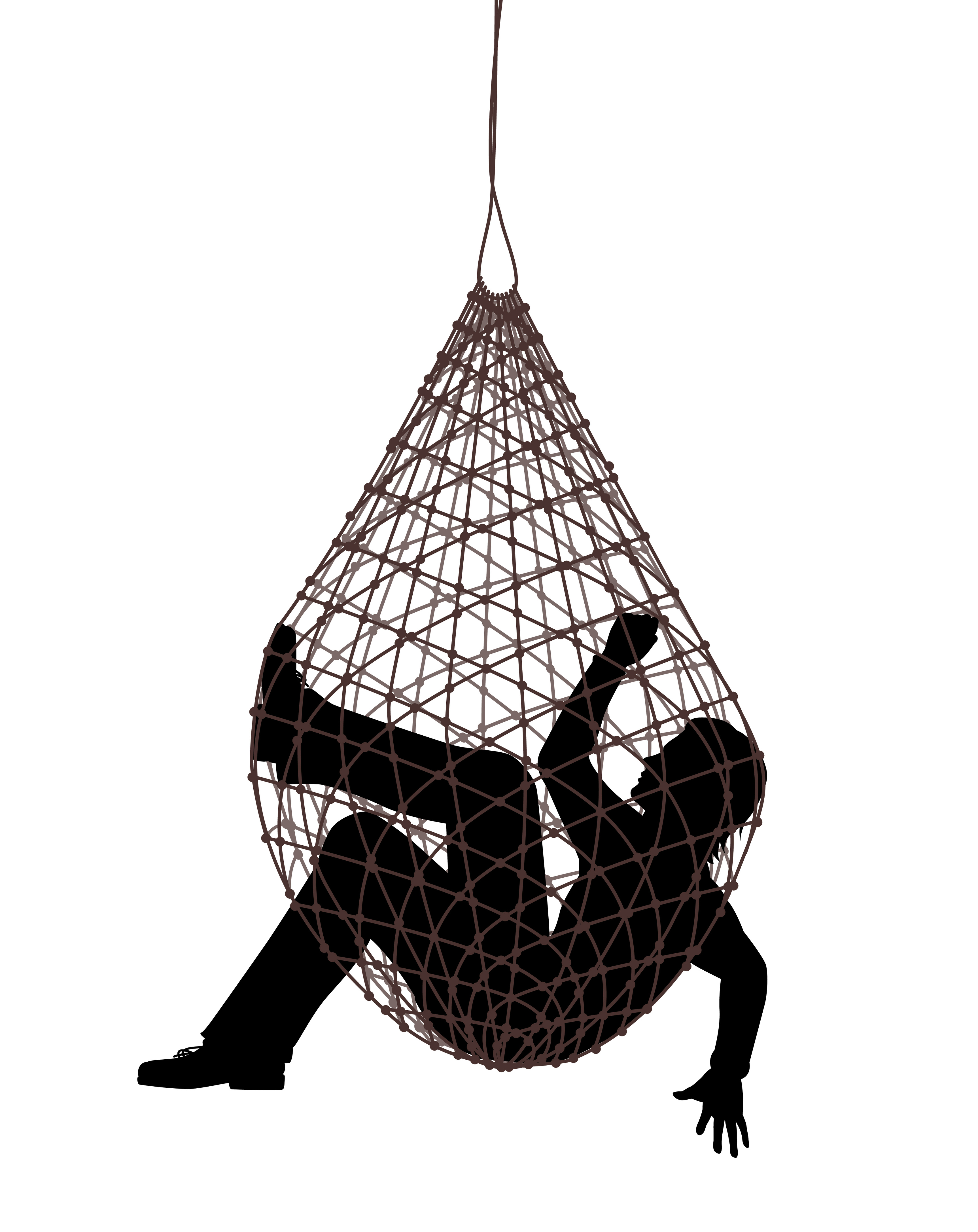 “For whoso findeth Me findeth life, and shall obtain favour of the LORD. But he that sinneth against Me wrongeth his own soul: all they that hate Me love death.” (Proverbs 8:35, 36)
“For whoso findeth Me findeth life, and shall obtain favour of the LORD. But he that sinneth against Me wrongeth his own soul: all they that hate Me love death.” (Proverbs 8:35, 36)
“They would [wanted] none of My counsel: they despised all My reproof. Therefore shall they eat of the fruit of their own way, and be filled with their own devices.” (Proverbs 1:30, 31)
"The heathen are sunk down in the pit that they made: in the net which they hid is their own foot taken." (Psalm 9:15)
The Word “Brimstone”
The Greek word translated as “brimstone” is θεῖον (theion) which is from the word Θεόν (theos) and means “divinity.” It should be translated as “divine incense” or “holy fire” because it is the fire of God’s purifying presence. Scripture speaks of God Himself being a “consuming fire” (Deuteronomy 4:24; Hebrews 12:29). This should always be in context with the truth that “God is love” (1 John 4:8). It’s God’s love that is a consuming fire.
“Set me as a seal upon thine heart, as a seal upon thine arm: for love is strong as death; jealousy is cruel as the grave: the coals thereof are coals of fire, which hath a most vehement flame.” (Song of Songs 8:6)
Notice it is love which produces coals of fire. Paul repeats this concept in Romans 12:
"Therefore if thine enemy hunger, feed him; if he thirst, give him drink: for in so doing thou shalt heap coals of fire on his head. Be not overcome of evil, but overcome evil with good." (Romans 12:20, 21)
The meaning of heaping coals of fire upon someone's head is not condemning them to burn in the fires of hell, but that by overcoming evil with good, you will convict the person of their sin to lead them to repentance.
"If thine enemy hunger, feed him — Do not withhold from any man the offices of mercy and kindness; you have been God's enemy, and yet God fed, clothed, and preserved you alive: do to your enemy as God has done to you. If your enemy be hungry, feed him; if he be thirsty, give him drink: so has God dealt with you. And has not a sense of his goodness and long-suffering towards you been a means of melting down your heart into penitential compunction, gratitude, and love towards him? How know you that a similar conduct towards your enemy may not have the same gracious influence on him towards you? Your kindness may be the means of begetting in him a sense of his guilt; and, from being your fell enemy, he may become your real friend! This I believe to be the sense of this passage, which many have encumbered with difficulties of their own creating. The whole is a quotation from Proverbs 25:21; Proverbs 25:22, in the precise words of the Septuagint; and it is very likely that the latter clause of this verse, Thou shalt heap coals of fire upon his head, is a metaphor taken from smelting metals. The ore is put into the furnace, and fire put both under and over, that the metal may be liquefied, and, leaving the scoriae and dross, may fall down pure to the bottom of the furnace. This is beautifully expressed by one of our own poets, in reference to this explanation of this passage: -
"So artists melt the sullen ore of lead,
By heaping coals of fire upon its head.
In the kind warmth the metal learns to glow,
And pure from dross the silver runs below."
It is most evident, from the whole connection of the place and the apostle's use of it, that the heaping of the coals of fire upon the head of the enemy is intended to produce not an evil, but the most beneficial effect; and the following verse is an additional proof of this.
Be not overcome of evil, but overcome evil with good — Be not overcome of evil - Do not, by giving place to evil, become precisely the same character which thou condemnest in another. Overcome evil with good - however frequently he may grieve and injure thee, always repay him with kindness; thy good-will, in the end, may overcome his evil." (Adam Clarke, Commentary on the Whole Bible, Romans 12:20, 21)
While the prophet Isaiah contrasts the fate of the willful sinner with those who walk righteously, he asks:
“The sinners in Zion are afraid; fearfulness hath surprised the hypocrites. Who among us shall dwell with the devouring fire? who among us shall dwell with everlasting burnings? (Isaiah 33:14)
The most common answer is that sinners will dwell in the devouring fire and everlasting burnings. However, Isaiah answers his own question in verse 15 by surprisingly saying:
"He that walketh righteously, and speaketh uprightly; he that despiseth the gain of oppressions, that shaketh his hands from holding of bribes, that stoppeth his ears from hearing of blood, and shutteth his eyes from seeing evil.” (Isaiah 33:15)
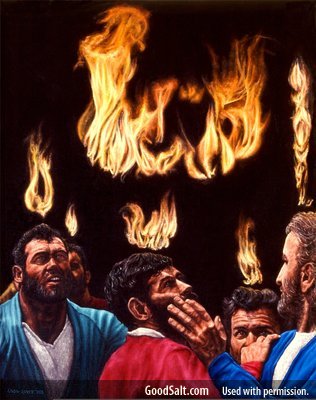 Is this not totally the opposite of what most Bible teachers teach? Satan has deceived the world into thinking that the place you don’t want to go is the place of “consuming fire” and “everlasting burnings” which is God’s very presence. While unified in Christ you will be clothed with His fireproof “robe of righteousness” (Isaiah 61:10); for “He (Christ) shall baptize (immerse) you with the Holy Ghost and with fire.” (Luke 3:16). All sin that binds you will consume away and, like the three Hebrews who were cast into a fiery furnace, not a hair on your head will be singed (see Daniel chapter 3); “For thou, O God, hast proved us: thou hast tried us, as silver is tried” (Psalm 66:10).
Is this not totally the opposite of what most Bible teachers teach? Satan has deceived the world into thinking that the place you don’t want to go is the place of “consuming fire” and “everlasting burnings” which is God’s very presence. While unified in Christ you will be clothed with His fireproof “robe of righteousness” (Isaiah 61:10); for “He (Christ) shall baptize (immerse) you with the Holy Ghost and with fire.” (Luke 3:16). All sin that binds you will consume away and, like the three Hebrews who were cast into a fiery furnace, not a hair on your head will be singed (see Daniel chapter 3); “For thou, O God, hast proved us: thou hast tried us, as silver is tried” (Psalm 66:10).
The Concept of “Forever”
What we must consider here is the fact that sometimes the word "forever" in Scripture means “until the end of the age.” Did you know that the word “forever” is used 56 times in the Old Testament in connection with things that have already ended?
“For this God is our God for ever and ever: He will be our guide even unto death.” (Psalm 48:14)
Here, the phrase, “for ever and ever” means “unto death.” The Hebrew word for “forever” here is עוֹלָ֣ם (olam) which, when referring to mankind, means to remain for as long as we live. In referring to God it means He remains for as long as He lives which is for eternity (1 Timothy 1:17).
The book of Exodus reveals, if a servant chose to serve his master rather than be set free, he was to serve his master “forever”:
“… His master is to pierce his ear through with an awl, and he will serve him forever (olam)” (Exodus. 21:6).
Obviously, the servant could not serve his master for an endless amount of time. He could only serve him as long as he lives and yet the Scriptures declare he shall serve him “forever.” The book of 1 Samuel 1:22 reveals that Hanna brought her son Samuel to the temple where he was to remain “forever.” Here the word “forever” is accompanied by the word ad (ad olam). The word ad puts a condition on the word “forever.” Samuel wasn’t to remain in the temple for eternity (as long as God lives), but instead for “as long as he liveth he shall be lent to the LORD” (verse 28).
Jonah used the expression “forever” (olam) to describe his experience in the belly of the whale (Jonah 2:1-6). In this instance Jonah was not in the belly of the whale until he died but was only in the belly for “three days and three nights” (verse 17) or, until the work of God renewing his mind was complete.
Thus, we see, by comparing Scripture with Scripture, that Scripture explains itself. The truth is, those who reject their salvation will “burn” with overwhelming and self-destructive guilt "forever", but this means until they die and not some endless amount of time. The Scriptures repeatedly reveal that the wicked, will be “no more” (Proverbs 10:25; Psalm 37:10). They will “perish” and “consume away” (Psalm 37:20). They will be “cut off” and “destroyed” (Psalm 37:28, 34, 38). They will return to “ashes” (Malachi 4:1, 3).
“ 'There is a way which seemeth right unto a man, but the end thereof are the ways of death.' Prov. 14:12.
Such ones are self-condemned. Their condemnation to death is not merely the decision of a Judge, but is the natural result of their own course. They have hated the Lord, have resisted all His advances, and have shown their desire to have nothing to do with Him. Since they positively refuse to live with Him, He has no other alternative but to leave them to themselves; and as they have no means of self-existence, they necessarily suffer destruction.
... So in justice no less than mercy to those who willingly yield to His control, He must let the wicked suffer the punishment which they have worked for. Indeed, it would be doing the wicked an injustice not to give them that for which they have so long and diligently laboured. They have taken counsel together against the Lord and against His Anointed, saying, 'Let us break their bands asunder, and cast away their cords from us.' [Psalm 2:2-3] All their desire has been to be left to themselves and now God gives them their desire. But as there is no place in the universe where God is not, the only thing for them is extinction." (E.J. Waggoner, Present Truth UK, Sep. 23, 1893, Bible reference in brackets added)
Someone may ask, “But the Bible says those who accept Jesus will live forever with God. Does that mean we will live until we die as well?” Yes! However, we have the promise that we will never die (see John 11:26; 1 Corinthians 15:51-55) because we will be in union with the Eternal One; for “He (God) only hath immortality!” (1 Timothy 6:16). So, to those who are in (at-one-with) the only Life-Giver, “forever” means, “immortality” which no one receives until the second coming of Jesus (1 Corinthians 15:51-55).
Also keep in mind that the literal fire which burns up the elements of earth (2 Peter 3:12) and turns the wicked into "ashes" comes AFTER everyone has already died. (See the article entitled, What Does the Bible Mean When it Says People Will “Go into Hell … Where Their Worm Dieth Not, and the Fire is not Quenched"? for more info on this). However, the consuming fire that kills those who resist is not the fire of combustion as can be seen in the instance of Nadab and Abihu who were consumed with fire and yet were carried out of the sanctuary tent still in their clothes:
"And Nadab and Abihu, the sons of Aaron, took either of them his censer, and put fire therein, and put incense thereon, and offered strange fire before the LORD, which He commanded them not. And there went out fire from the LORD, and devoured them, and they died before the LORD. Then Moses said unto Aaron, This is it that the LORD spake, saying, I will be sanctified in them that come nigh Me, and before all the people I will be glorified. And Aaron held his peace. And Moses called Mishael and Elzaphan, the sons of Uzziel the uncle of Aaron, and said unto them, Come near, carry your brethren from before the sanctuary out of the camp. So they went near, and carried them in their coats out of the camp; as Moses had said." (Leviticus 10:1-5)
Take note that their own way was brought back upon their own heads. They were offering "strange fire" and thus it was "fire from the LORD" which devoured them. This again is the fire of God's holy presence from which Nadab and Abihu reacted in fear, not trusting in God's everlasting mercy, and were devoured by their mental anguish of guilt and shame they were holding onto. As we read from Isaiah earlier: "The sinners in Zion are afraid; fearfulness hath surprised the hypocrites" (Isaiah 33:14), thus they could not stand in the presence of that devouring fire of perfect holiness and love because fear results in mental torment (1 John 4:18). Being carried out still in their coats reveals that God did not burn them to ashes out of vengeful wrath for breaking His Law. God's wrath was simply giving them over to their own way; for God has said: "I have consumed them with the fire of My wrath: [how?] their own way have I brought upon their heads …” (Ezekiel 22:31).
Won't There Be Different Degrees of Torture?
"And that servant who knew his master’s will, and did not prepare himself or do according to his will, shall be beaten with many stripes. But he who did not know, yet committed things deserving of stripes, shall be beaten with few. For everyone to whom much is given, from him much will be required; and to whom much has been committed, of him they will ask the more." (Luke 12:47, 48)
There are a few teachers and churches who believe that God will burn and torture people with fire, but do not believe that God will burn people for an endless amount time. They use the above verses to say God will torture them with fire and make them suffer, but only in proportion to their sinfulness until they die.
 However, what Christ is saying in these verses is the more knowledge that a person had of Christ (the Master) and His will, the greater his suffering will be. When a person attends a funeral of a person they don’t know that well, the suffering is not that great; but when you have an intimate knowledge of a person, the suffering is immense. For someone who never knew Christ intimately, the eternal separation from Him will not be that intense. They will be left to deal with their own sufferings of overwhelming guilt. But to someone who may have had intimate knowledge of Christ, but threw away their salvation and became "lovers of pleasures more than lovers of God" (2 Timothy 3:4) will suffer greatly as they experience greater loss and eternal separation from their divine Friend, knowing that He loved them unconditionally and did everything in His power to save them.
However, what Christ is saying in these verses is the more knowledge that a person had of Christ (the Master) and His will, the greater his suffering will be. When a person attends a funeral of a person they don’t know that well, the suffering is not that great; but when you have an intimate knowledge of a person, the suffering is immense. For someone who never knew Christ intimately, the eternal separation from Him will not be that intense. They will be left to deal with their own sufferings of overwhelming guilt. But to someone who may have had intimate knowledge of Christ, but threw away their salvation and became "lovers of pleasures more than lovers of God" (2 Timothy 3:4) will suffer greatly as they experience greater loss and eternal separation from their divine Friend, knowing that He loved them unconditionally and did everything in His power to save them.
No one has known God and His Son more than Satan. He was "the anointed covering cherub" who "walked up and down in the midst of the stones of fire" (Ezekiel 28:14) – the symbol of God's character transcribed in His Law (Deuteronomy 33:2). This is why his emotional suffering is the greatest and why he will suffer longer than anyone else will.



